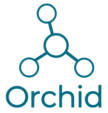If you’re thinking about having children of your own and have done any research online, it’s **very likely** that you will come across the acronym IVF. Unfortunately, unless you’re a physician and this is your full-time job, you probably don’t know much about it! Most people will not need to use IVF treatments to conceive, but it’s important to know your options before you begin your own fertility journey. There are many fertility treatments and medications available – the one for you would depend on your specific situation – and in this article we will focus on 3 that are the most common in the fertility treatment world.
Intra Uterine Insemination (IUI)
Intra Uterine Insemination, or IUI, is a process in which sperm is placed within the uterus (“intra” means “within”). The ovaries are organs that produce female eggs with the goal of being fertilized. By placing the sperm within the uterus, you essentially give the sperm a head start and a better chance to meet up with an egg once it is released by an ovary.

The sperm sample that will be used in the IUI process is usually concentrated (more sperm in a smaller volume). This gives you the best chance that one of the sperm cells will meet up with the egg!
During this procedure, the sperm sample is collected in a vial. A small catheter is used to transport the sperm from the vial to the uterus. The catheter is inserted into the vagina, through the cervical opening, and into the uterus. Depending on your condition, medications may be needed in order to help the ovaries release an egg.
Relative to IVF and ICSI, IUI is the least expensive and invasive option. The overall cost will vary person-to-person, but you can expect to spend under $700 for one round of IUI. IUI is a great first option for those that are having difficulty conceiving. IUI makes the most sense for people that will be using donor sperm, have been diagnosed with endometriosis, or have mild male factor infertility.
Some tests that we recommend taking before making your treatment decision are:
- Male Sperm Analysis Test (testing for sperm count and sperm motility at the very least)
- Female Hormone Test to evaluate the health of your menstrual cycle and your ability to conceive
- Thyroid Hormone Test to evaluate your thyroid hormone levels, which play a major role in your fertility and overall health
In Vitro Fertilization (IVF)
In Vitro Fertilization (IVF) is a revolutionary process in which an embryo is formed outside of the uterus (“in vitro” in Latin means “in glass”, meaning that the embryo is formed using lab equipment such as a test tube or Petri dish). Eggs are retrieved from the ovaries using a catheter and fertilized by sperm in a lab. Once an embryo forms, it is returned to the uterus where it will (hopefully) implant and grow!
IVF is a great option for people that have fallopian tube damage (making it difficult for eggs and sperm to reach each other), severe endometriosis (fallopian tube damage can be caused by endometriosis), or those with more-than-moderate male factor infertility.
An important statistic to keep in mind is that 1% of U.S. births are the result of an IVF procedure. IVF has played a role in over 1 million U.S. births since 2014!
IVF is a relatively hands-on assisted reproductive technology (ART), so it makes sense that it will cost more than IUI. Lab technicians have to be extremely skilled for this type of work. It’s common for one cycle of IVF to cost at least $10,000. This value will vary based on your specific conditions and any medications you may need or want to improve your chances of conceiving.
Intracytoplasmic Sperm Injection (ICSI)
Intracytoplasmic Sperm Injection (ICSI – sounds like a new crime show!) is an extension of IVF. It is primarily used in cases of severe male infertility. In the case of IVF, sperm are placed near the egg in a Petri dish and fertilize it. However, some sperm samples have such low motility that they cannot swim over to the egg and fertilize it. With ICSI, a single sperm cell is injected into the egg to fertilize it. Like IVF, a highly skilled lab technician is required for this process to be successful.
If ICSI is something you would consider, you can expect the cost to be at least $1,000 on top of the IVF treatment cost. Although the cost is the highest of the 3 treatment methods above, it gives you the best chance at successfully conceiving!
The appropriate treatment for you will depend on your medical history, your existing conditions, and your personal preference. If you’re looking to take the first step in owning your fertility, we can help! Our at-home fertility tests are the most accurate devices available.
